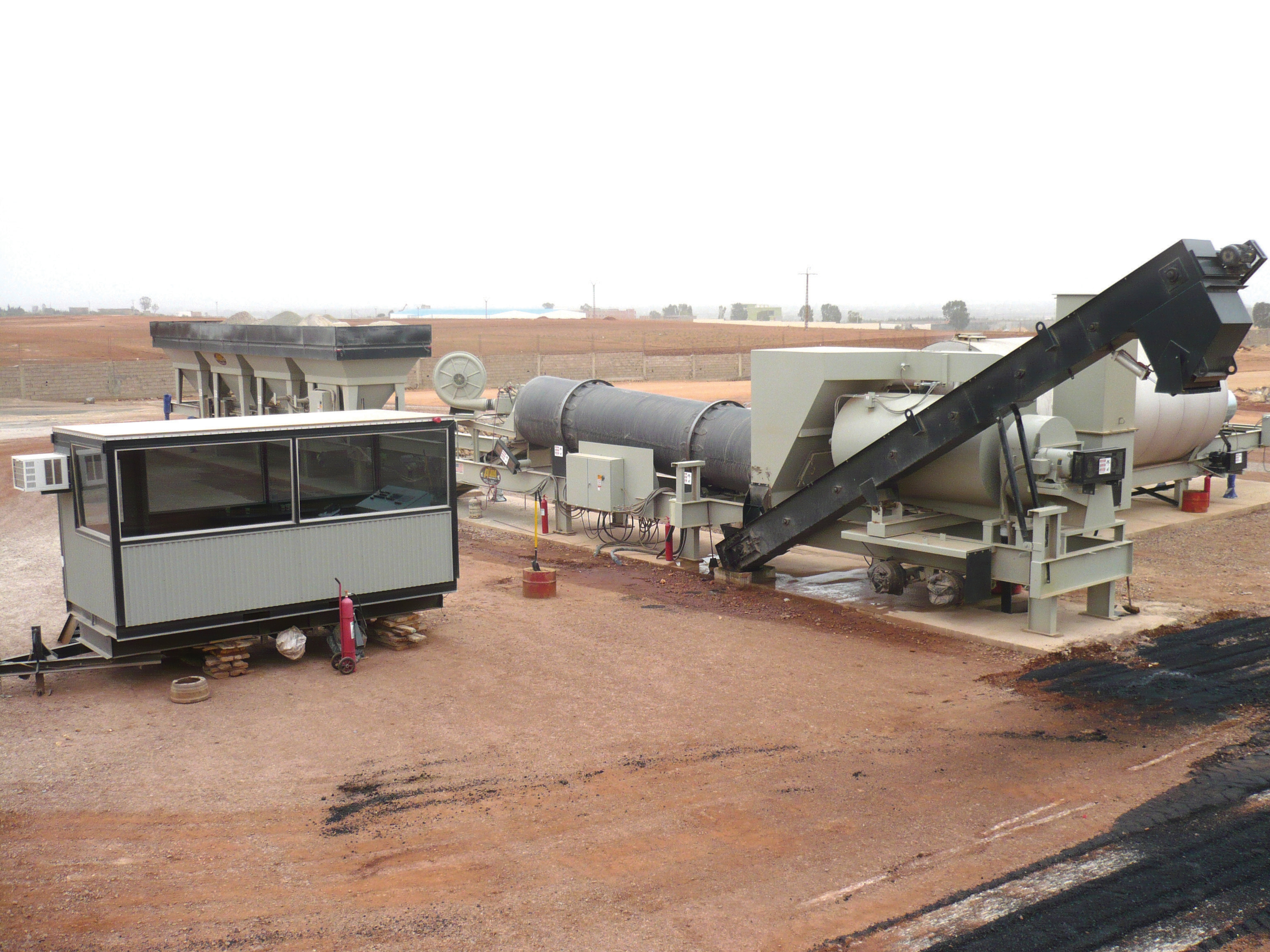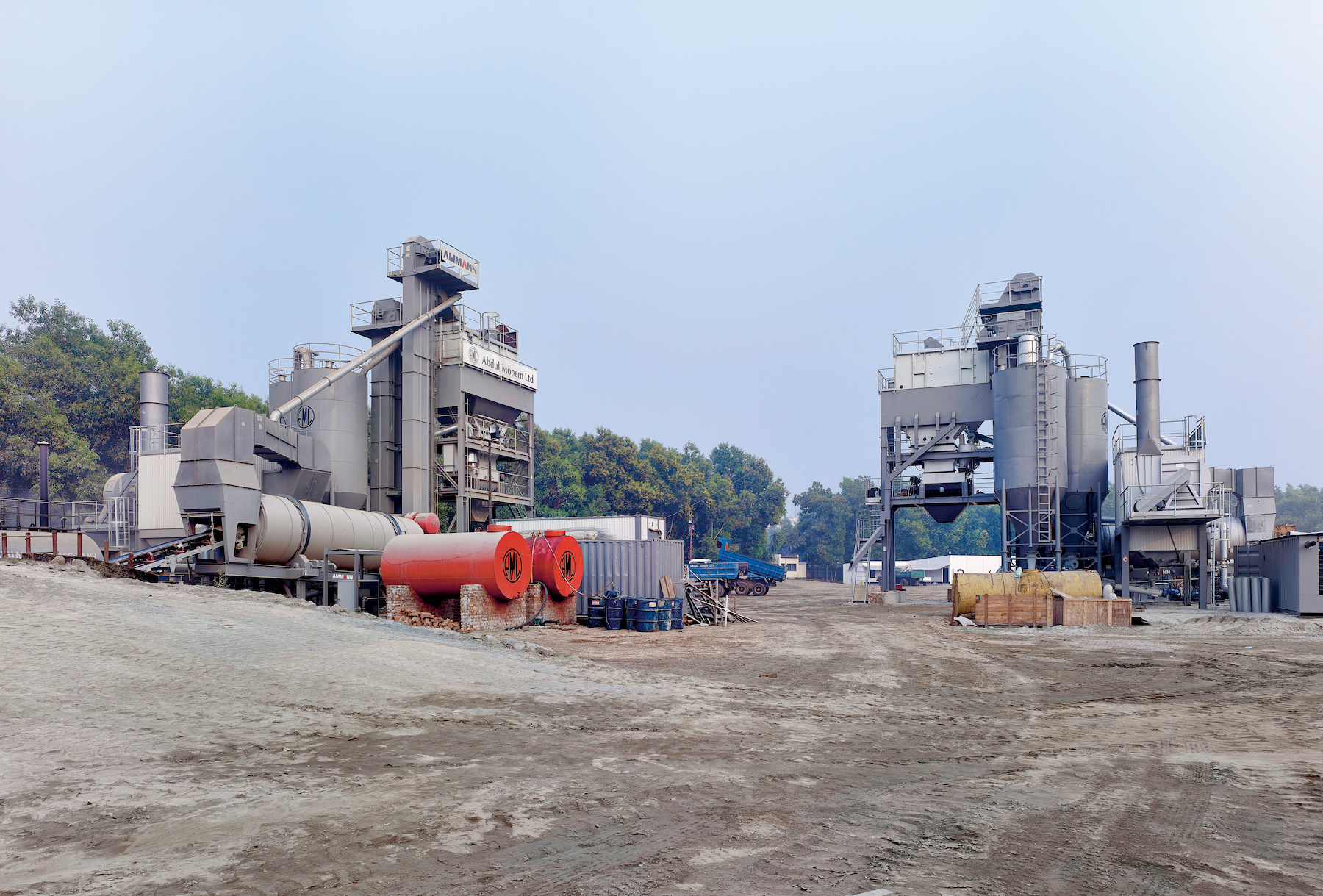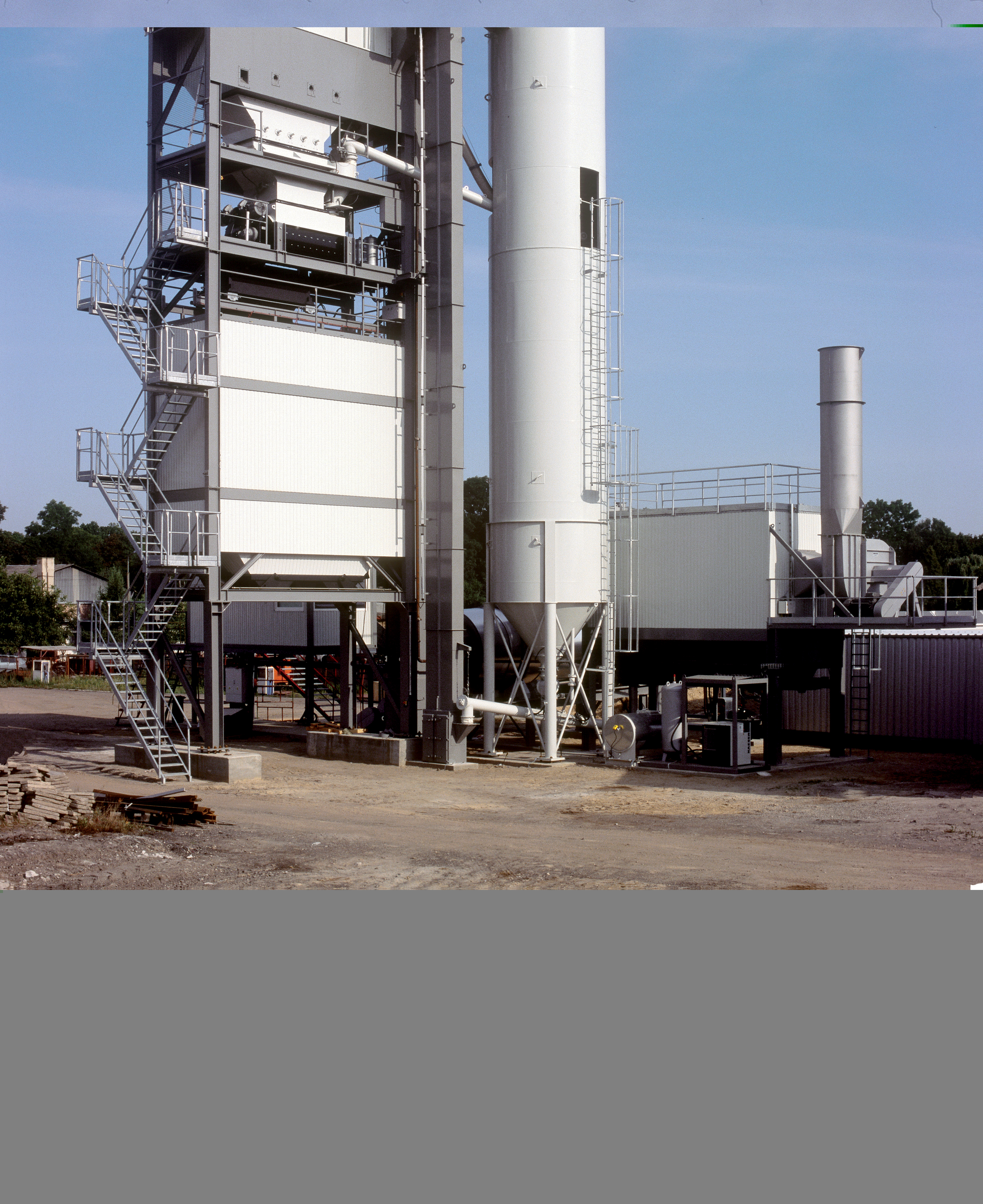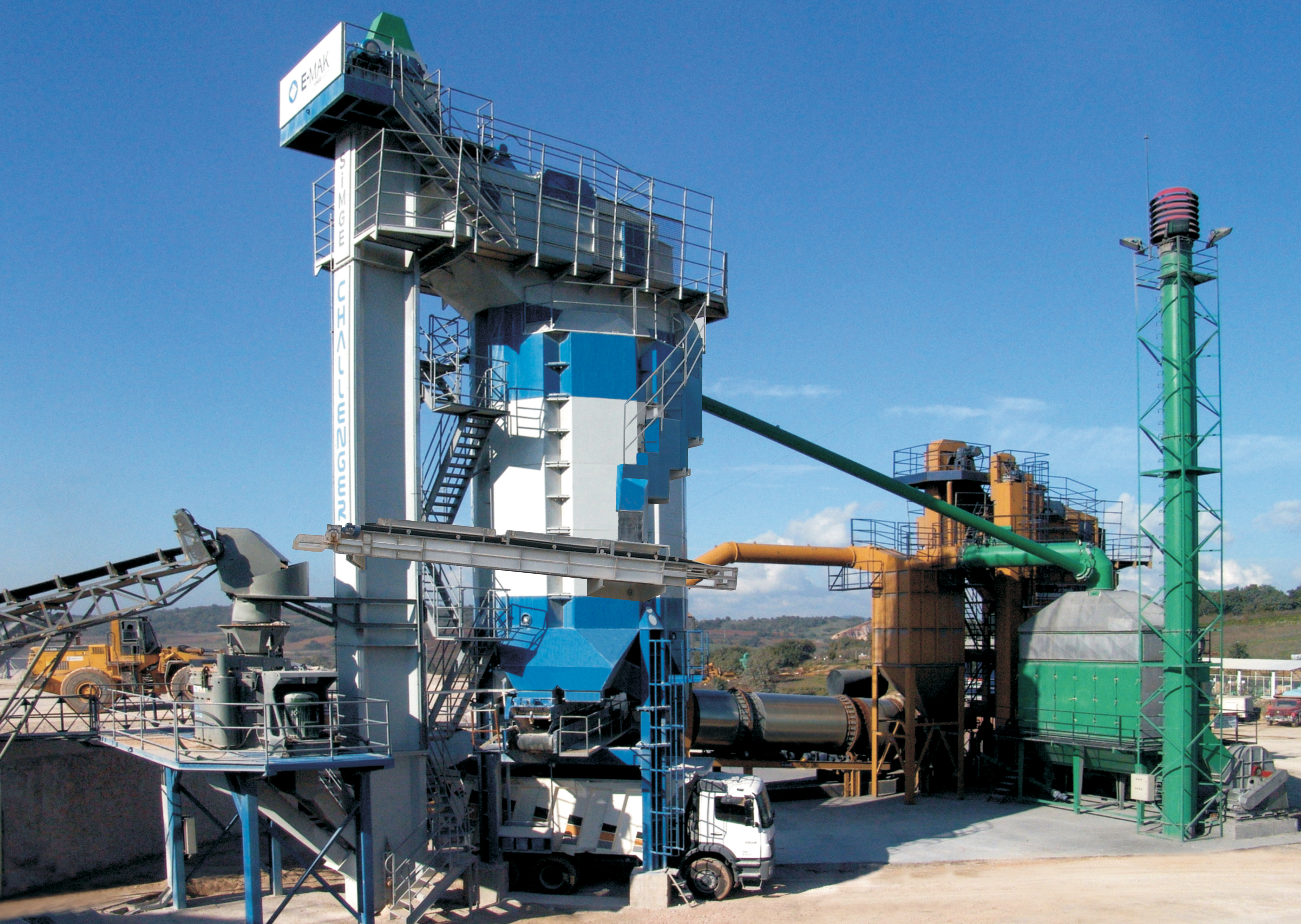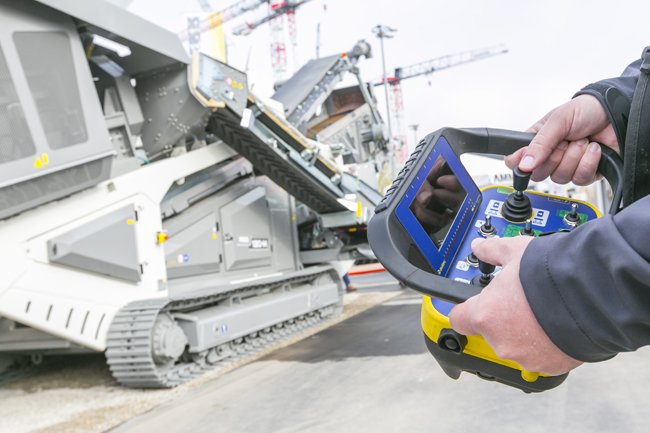With demand for asphalt predicted to increase, manufacturers are ready to meet the challenge as Patrick Smith reports
A new report estimates that world demand for asphalt will grow 2.1%/year from the low in 2008 to 108 million tonnes in 2013. Paving products accounted for more than 80% of total asphalt demand in 2008, and in the developed asphalt markets of North America, Western Europe and Japan, demand for asphalt was hit hard by recession in 2008 says the report from US-based Freedonia Group. [For details about World Asphalt, contact Corinne Gangloff on Tel: +1 440 684 9600 or by email %$Linker:With a total market close to 30 million tonnes in 2008, North America is the largest regional market for asphalt: demand is expected to rebound from the weak 2008 base, reaching nearly 33 million tonnes in 2013.
The Asia Pacific region is the fastest growing geographic market for asphalt because of the massive road and highway construction and modernisation programmes underway in China and India.
"China will be especially important, accounting for 28% of all new global asphalt demand up to 2013. Demand in the region will increase 3.3%/year to 32 million tonnes in 2013," says the Freedonia report.
Demand for asphalt in Western Europe is projected to increase less than 1%/year to 22 million tonnes by 2013, where gains are expected from continued demand in road repair and maintenance applications.
In these difficult times, such forecasts will come as good news to asphalt plant producers who can also add to their lists other growth countries including Indonesia [Asia's third largest emerging economy after China and India], Turkey and those of Latin America.
Such countries will be looking for state-of-the-art equipment, including asphalts plants, to carry out their ambitious programmes.
Celebrating a century
And one UK manufacturer says that its wide variety of markets and product offerings is keeping it growing.Phoenix Parker Holdings, whose stable includes many well-respected brand names including Parker Plant (asphalt, crushing and concrete plants),
Products from the group's companies include a wide selection of mobile, modular and static asphalt plant complemented by crushing and screening plants in mobile, track, transportable and static configurations.
"This allows customers the opportunity to purchase from one source for all their project and application needs. Examples of the variety of solutions provided recently include a Phoenix StarMix 3000 static high level batch plant in Northern Ireland; a StarMix 3000 static batch plant in Morocco and multiple RoadStar 2000 and 3000 mobile batch plants in Turkey," says the company.
A new Phoenix StarMix 3000 high level static 240tonnes/hour asphalt mixing plant has been commissioned to provide asphalt for the largest ever highway project in Northern Ireland.
The DBFO2 contract, as it is known, is a Public Private Partnership (PPP) encompassing Design, Build, Finance and Operate (DBFO) and is a 30-year, £250 million (US$390 million) showcase road project.
The Phoenix StarMix asphalt plant has a 3,250kg mixer and includes eight cold feed hoppers, facility for RAP introduction, four vertical high efficiency bitumen storage tanks, a fibre additive system and 300tonnes of hot storage capacity under the mixer. The plant is destined to provide almost 500,000 tonnes of quality asphalt for the surfacing requirements of the new dual carriageway A4 from Dungannon to Ballygawley as well as providing asphalt for other projects.
After purchasing a Phoenix RoadStar 1500 mobile batch plant three years ago for several projects north-east of Casablanca, Morocco, Enterprise Ouarrach found that business had progressed to the point where a larger capacity plant was required.
In a departure from the more usual fully mobile plants that have been
supplied in Morocco in recent years, a Phoenix StarMix 3000 static
240tonnes/hour batch plant was purchased to support the continuing
infrastructure development and maintenance in and around Sidi Kassem.
The original mobile plant is being moved on to other projects in more
remote locations.
The new plant is one of the largest in Morocco and
meets the customer's needs for a high capacity and environmentally
compliant installation that features five cold feed hoppers, a 2.5m
diameter dryer, mixing tower with screen bypass facility, bag filter,
five horizontal bitumen storage tanks and 200 tonnes of hot storage
capacity.
"The highly successful Phoenix Parker Roadstar range
of mobile asphalt plants, from 80-240tonnes/hour, minimises the
complexity of transportation, installation, civil works and site
cranage," says the company "The RoadStar range's main components are all
road-towable and can be installed on flat, compacted ground with
minimal concrete foundations. Due to this unique mobile design,
installation costs such as site labour and cranage are substantially
reduced as are subsequent dismantling and relocation.
"The main mobile units of the plant incorporate cold
feed, dryer/burner, mixing section, bag-filter and bitumen tanks making
this among the most mobile plant ranges available. This exceptional
mobility has resulted in multiple RoadStar 2000 and 3000s being sold and
commissioned in some of the more remote regions of central Turkey
within the last year."
Sophisticated new plant
A large quarry owned and run by theThe quarry produces around 4 million tonnes/year of crushed limestone and is the largest of the five quarries the Simge Group runs in Turkey, which have a combined output of 12 million tonnes/year. The site has an asphalt output of 500,000tonnes/year, again a significant portion of the 1.2 million tonnes/year the Simge Group produces.
However, asphalt production is set to increase with the commissioning of a sophisticated new plant at the quarry with an output of up to 320tonnes/hour, twice that of the earlier generation 160tonnes/hour plant installed at the site.
The blasted stone is then carried by tipper truck to the tipping points and the size reduction system starts with the three primary crushers from other manufacturers, while the conveying, secondary and tertiary crushing and screening is carried out with equipment supplied by the Simge Group's
The two asphalt plants are linked to two of the E-MAK Challenger aggregate systems, while the Simge Group is adding a Ratek recycling system [unveiled at
With so much of the quarry's output geared to road construction, material demand and specification trends are important issues for the Simge Group. Because Turkey has some 43% of the world's limestone reserves, aggregate costs are comparatively low at around €2.5/tonne although bitumen costs are high, so asphalt recycling is becoming more of an issue in the country.
This prompted E-MAK to develop its Ratek recycling system, which operates in addition to a conventional asphalt plant. Because the Simge Group has its own quarries, it is able to fine tune its technology in the field and will prove the Ratek concept.
Partnership agreement
Recently,-"The aim was to develop an asphalt plant at the forefront of technology in Europe and worldwide, meaning a plant capable of producing all type of mixes, testing new formulas and, above all, attesting and quantifying the improvements, compared to traditional asphalt plants.
"This was in terms of energy saving (both electrical and thermal energy); environmental impact (noise reduction as well as low gas and dust emissions); finished product quality (extreme accuracy in temperature control as well as in quantities handled), and with special care to maintenance (use of special anti-wear materials to reduce maintenance to a minimum and a reduction of electric motors being used)," says Marini.
The initial studies concerned the feasibility of the above requirements and examined plant components: the dryer drum for virgin and recycled aggregates, bag filter, screen, and mixer.
The asphalt plant, installed in Città di Castello,
Perugia area, central Italy, features
"Such controls, plus temperature probes positioned
all over the plant, will allow production parameters to be checked and
optimised. For instance it will be possible to modify dryer drum
rotation speed according to hourly production in order to keep a
constant dryer filling, thus optimising thermal exchange between flame
and aggregates. Screen vibration frequency could also be controlled
according to screen load." Marini's R&D department, managers of the
university and the technicians on the jobsite are now monitoring the
plant operation and storing production data.
A report will be drawn up showing the different
operational steps and listing the data of asphalt produced, such as
percentage of RAP [recycled asphalt pavement] used.
"This traceability will allow Abils to offer contractors new products having excellent quality parameters.
"Special care has also been paid to the bitumen
storage and heating systems by means of storage tanks featuring a bigger
insulation to limit the heat losses. It is also possible to meter
standard or modified bitumen, clear binders and bitumen emulsion (for
production of cold mixes with up to 100% of recycled material)," says
Marini.
"Customers' attention to energy consumption,
environmental impact and economy is constantly increasing, but thanks to
the commitment of university and research centre, end-user and
manufacturer, the Marini Top Tower 3000 has been optimised."
Five-floor system
Turkish manufacturer ÇESAN has just introduced an innovative mobile asphalt plant, while one of its 200tonnes/hour plants has been successfully supplied and commissioned for U.L.O Consultants in Nigeria by UK-headquartered Finedoor, a company that partners with ÇESAN in the supply of equipment wordlwide.ÇESAN is a major manufacturer of asphalt plants and can offer mobile and stationary asphalt plants from 30-300tonnes/hour capacities.
"With low operating costs the plant that was supplied can be operated either semi-automatically or fully automatic by two personnel making it an ideal choice for the Nigerian project," says Finedoor.
U.L.O Consultants is involved in major construction projects working on key government projects in Asaba, the capital of the Delta State.
Working alongside local support, three Finedoor engineers built and commissioned the ÇESAN plant for the Asaba project and supplied a complete range of relevant tools and containerised workshops.
ÇESAN, which builds to European and world standards, says it is "preparing to push the limits" with the new easy-to-install mobile asphalt plant.
"The mobile asphalt plant with a capacity of 280-300tonnes/hour features a five-floor screening system, four tonnes of mixer volume, a stone mastic unit and standard road dimensions, allowing easy transportation on all roads across the world," says the company.
Processing planings
The largest asphalt plant to be supplied to a customer in the UK by
German manufacturer
The multi-fuel burner is capable of burning a variety of fuels, including oil and natural gas, and is equipped with a full range of operating and safety devices to deliver high efficiency fuel usage. A frequency inverter controls burner blower speed to optimise efficiency of the drying process.
The heart of the recycling system is a 2.8m x 12m long uniflow recycling drum, which dries and heats the RAP materials. Its internal design ensures that the burner flame makes no direct contact with the dynamic reclaimed materials inside the drum.
The plant features a 5,000kg twin-shaft paddle mixer and has a hot mixed material storage capacity of 600tonnes (six compartments of 100tonnes each).
Control of the whole process is from a custom-built control cabin overlooking the plant. From here, all aspects of the process are monitored through Benninghoven's sophisticated Online Batcher 3000 computer system.
Ammann-SIM research
Energy savings and reduced environmental emissions are two major challenges for industrial designers of any kind of machine.Asphalt mixing plants need great amounts of energy in the form of heat to dry and heat aggregates at the required temperature.
"Methods to produce asphalt at low temperatures have been a subject of research for a while, especially methods that do not require drying the aggregates, which is the most costly step in terms of energy. However, currently most asphalt is produced in hot mix plants," says Ammann-SIM.
"To avoid energy waste, we need to pursue efficiency, as well as effectiveness. In the case of the aggregate drying process, we are thinking of the burner-drier system. With the burner we intend to develop the energy contained in the fuel to generate a combustion reaction. As this is a highly exothermic reaction, it produces heat.
"Therefore the first step to reduce energy consumption is to obtain this reaction in an efficient way: the generated heat is transferred to the aggregates and this is where the drier comes into play." The company says that in terms of design, identifying a type of blading that is able to work efficiently with all kinds of mixes is not an easy task, and that it is to undertake a research in partnership with the academic world to study heat transfer mechanisms in asphalt mixing plants' driers. The study is conducted using highly sophisticated numerical simulation methods and finite elements.
"The first significant results obtained were used to design the RAH 50, a drier that not only uses 10-15% less fuel, but also employs up to 50% of milled asphalt." To reduce the possibility of altering the rheological properties of the milled product, it should not suffer any thermal stress, while exposure to high temperatures may cause the product to release volatile substances that harm the environment.
Ammann-SIM added: "Using the new sophisticated technology leads to lower fuel consumption and a correct and efficient use of milled asphalt. In order to control the thermal exchange, the RAH 50 can vary the rotation speed according to exhaust gas temperatures and the product to be dried.
"As well as benefiting from the study's first results, the models in operation have confirmed our expectations and have provided additional information for the ongoing research project."




